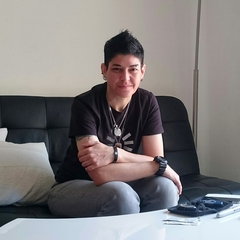
Venezuela without insulin
28 Apr 2017, 10:54 a.m. in Global Stories by Melissa Cipriani
This is for those of you who do not live in Venezuela, but need to know what’s happening in our country. I usually write in Spanish since I live in Venezuela, but this time I’m writing in English in an effort to draw the attention of international organizations and media to the life and death situation faced by Venezuelans living with Type 1 diabetes.
My daughter was diagnosed when she was eight years old, her life depends on getting her daily doses of insulin. For many years I never had to worry about getting her insulin and diabetes supplies since all I had to do was to go to the pharmacy and purchase whatever I needed. Roughly about three years ago, insulin and diabetes supplies needed to control type 1 diabetes began to become scarce. At that moment we started a campaign on social media with the hashtag #LaDiabetesNoEspera (Diabetes does not wait) #SinInsumosNosMorimos (Without supplies we will die).
Fast forward three years and the situation, instead of getting better, has worsened.
Last week I visited five pharmacies and in each one, the answer was the same: no insulin, of any type, nor glucose testing strips.
This situation is repeated all over the country, in big or small towns, and public or private health facilities. Anyone who lives with type 1 diabetes or has a relative or friend living with this chronic condition, knows how serious this can be, and they also know what may happen if someone needing insulin does not get their daily doses of it. Many, many people, young or old, are presenting complications due to using less insulin than needed to make it last or simply using no insulin at all.
The same happens with glucose testing strips. There are none in the local market. I keep close communication with other parents of type 1 children, and the common denominator in our conversations is that there are no testing strips nor insulin. Again, those of us who have a child, relative or friend with type 1 diabetes know the importance of testing at least 5 times a day. How can anyone dose accurately without a proper glucose value? Insulin is a lifesaving hormone, but too little or too much can lead to serious consequences: hyperglycemia, Diabetic Ketoacidosis (DKA), hypoglycemia and death.
A few months ago, while talking to the father of a six-year-old type 1 girl, he told me that they were not injecting the fast acting insulin because they had no glucose testing strips and they were afraid of her getting hypoglycemia. Does anyone understand how serious this is? This child could die if she does not receive her insulin, but she can also die if her parents give too much or too little insulin.
It seems that Venezuelan authorities are not interested in solving this problem. if there was any interest whatsoever, I would not be writing this piece at this moment.
Our hands are tied. The government refusal to declare a Humanitarian Crisis, hinders the efforts of any international organization wanting and willing to help. Medicines are not allowed in the country via courier nor any other means of delivery. People with economic means are purchasing glucose testing strips via Amazon, Ebay or Diabetes Supplies websites, but very few can afford to do this. Insulin must be kept refrigerated and the few donations we have been able to receive is because good natured persons travelling to our country bring them as part of their baggage. But how many people can those donations help? People are beginning to deteriorate and show early complications due to lack of good control.
“There are between 8 and 10 new type 1 diabetes diagnosis each month, so we are talking about 1,000 to 1,200 new cases every year, patients who, in a good percentage of the cases will have trouble getting the basic minimum to control their condition and save their lives”*
“We will see more people dying. There are no insulins, nor oral medications, nor glucose testing strips. When there is no access to the proper treatment, glucose rises, the person becomes dehydrated and the organism loses its balance. Then they are taken to an Emergency Room where there are no proper saline solutions or they have no insulin,” warns Imperia Brajkovich, president of the Venezuelan Society of Endocrinology and Metabolism.
The type 1 diabetes population in Venezuela will begin to die if there isn’t a solution soon. This is a cry for help. A cry for life.
What can we do to support your efforts?
I have been in the streets marching, protesting and demanding our rights and our diabetes community can help by continuing to make noise.
With two other moms we have incorporated an NGO called Guerreros Azules. We are trying to figure out a way to bring in insulin donated by other organizations to the country, but there is bureaucracy and red tape to deal with. I’m sure we will find a way.
Our other plans include raising funds to purchase diabetes supplies abroad, since there is nothing to be purchased in Venezuela, as well as workshops for parents of kids with diabetes, and the children and teenagers themselves.
You can help by sharing this post using the hashtag #VenezuelaSinInsulina.








